
Two EMBL scientists awarded ERC Consolidator Grants
EMBL group leaders Isidro Cortes-Ciriano and Wojciech Galej received ERC Consolidator Grants for their work on how genome structure and gene regulation shape human disease.
2025
announcements
Showing results out of

EMBL group leaders Isidro Cortes-Ciriano and Wojciech Galej received ERC Consolidator Grants for their work on how genome structure and gene regulation shape human disease.
2025
announcements

New research suggests that inflammatory support cells play a key role in damaging bone marrow early in cancer development – potentially offering a new target for treatments that stop blood disorders before becoming cancerous.
SCIENCE & TECHNOLOGY2025
science-technology

EMBL researchers have developed a new AI tool, which, through a game of molecular laser tag, is helping us better understand the origins of cancer.
SCIENCE & TECHNOLOGY2025
science-technology
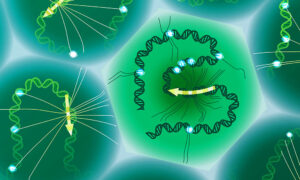
EMBL scientists have developed a more sensitive single-cell sequencing tool that links genomic variants and RNA in the same cell, helping to better uncover links to complex diseases.
SCIENCE & TECHNOLOGY2025
science-technology

EMBL-EBI’s newest Research Group Leader is investigating how somatic mutations reveal the hidden histories of human cells.
PEOPLE & PERSPECTIVES2025
people-perspectivesperspectives

Scientists identified individual stem cell-like cells responsible for leukaemia relapses in kids and precisely characterised their molecular properties.
SCIENCE & TECHNOLOGY2025
science-technology
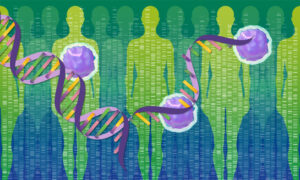
SAVANA is a new tool designed for accurate detection of structural variations in clinical samples.
SCIENCE & TECHNOLOGY2025
research-highlightsscience-technology

Scientists at EMBL and DKFZ have discovered how cells in the liver maintain their identity and avoid becoming tumour cells.
SCIENCE & TECHNOLOGY2025
science-technology

Study identifies a novel mechanism driving osteosarcoma and provides insights to help predict patient outcomes.
SCIENCE & TECHNOLOGY2025
research-highlightsscience-technology

In our final 12th ‘moment of philanthropy’, we shine a light on how a donation from the Athenaeum Dietrich Götze Stiftung fuels impactful EMBL research that aims to better understand treatment-resistant childhood leukaemia.
CONNECTIONS2025
connections

Researchers uncover that DNA changes that cause cancer drug resistance can be grouped into four categories, and identify possible new therapeutic targets.
2024
announcements
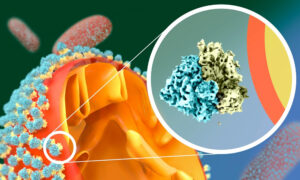
Scientists at EMBL Heidelberg and University of Virginia revealed a new cellular response to starvation: ribosomes attach to the mitochondrial outer membrane in a very unusual way, via their small subunit. The finding made in yeast might provide insights into how cancer cells survive the harsh…
SCIENCE & TECHNOLOGY2024
science-technology

An AI-enhanced advanced microscopy approach offers promise in better understanding glioblastomas, one of the deadliest brain cancers.
SCIENCE & TECHNOLOGY2024
science-technology
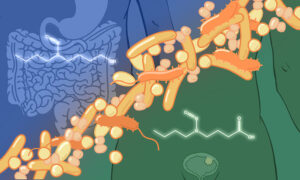
Study shows that gut bacteria can metabolise carcinogens and cause them to accumulate in distant organs, leading to tumour development.
SCIENCE & TECHNOLOGY2024
science-technology
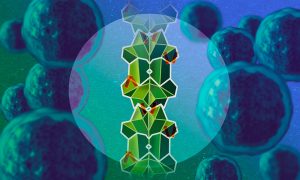
EMBL Hamburg scientists and collaborators discovered a new molecular mechanism in which an unstructured protein disables one of the main cancer-promoting proteins by gluing them into an elongated stack. Data from human patient samples support the role of this mechanism in prostate cancer…
SCIENCE & TECHNOLOGY2024
science-technology

Large-scale study uses data from Danish health registries to predict individual risks of developing cancer
SCIENCE & TECHNOLOGY2024
research-highlightsscience-technology

An international team of researchers aim to combine social determinants of health with genomics, immune profiling, and exposomics data to tackle cancer inequities at an unprecedented scale.
SCIENCE & TECHNOLOGY2024
announcementssciencescience-technology
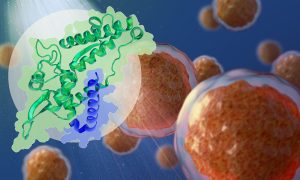
A new study from the Bhogaraju Group at EMBL Grenoble reveals how the cancer-promoting MAGE family of proteins bind to their targets, aiding the development of anti-cancer drugs that target these proteins.
SCIENCE & TECHNOLOGY2024
sciencescience-technology

Approximately 300 scientists met up at EMBL Heidelberg to unravel the centuries-old puzzle of cancer through the modern lens of genomics.
SCIENCE & TECHNOLOGY2024
eventsscience-technology
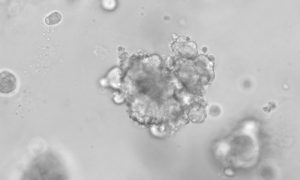
A new organoid model mimics the behaviour of neuroendocrine tumours (NETs), providing a novel and invaluable tool to study the disease in the lab.
SCIENCE & TECHNOLOGY2023
sciencescience-technology

Leading charities Children with Cancer UK and Cancer Research UK will co-fund a major £5.5 million research programme to advance precision medicine for relapsed childhood cancers.
2023
announcements

Baubak Bajoghli, Director of Austrian Bioimaging/CMI, discusses his passion for imaging and his work straddling basic and applied research in biology.
EMBLetc2023

New research improves understanding of the molecular mechanisms behind why some cancers respond to immunotherapy and others don't.
SCIENCE & TECHNOLOGY2023
research-highlightssciencescience-technology
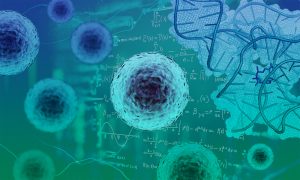
SComatic enables researchers to link genotype to phenotype using only single-cell profiling data
SCIENCE & TECHNOLOGY2023
research-highlightssciencescience-technology

EMBL-EBI data resources are being used to deliver thousands of genetic diagnostics to patients every month.
SCIENCE & TECHNOLOGY2023
perspectivessciencescience-technology
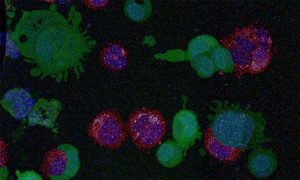
The PLAST-CELL project aims to understanding cancer progression by quantifying a cancer cell’s ability to respond to environmental stress that threatens its survival
CONNECTIONS2023
connectionstechnology-and-innovation

Postdoctoral researcher Carolin Sauer is leveraging long-read sequencing to develop new detection methods for various cancers.
LAB MATTERSPEOPLE & PERSPECTIVES2023
lab-matterspeople-perspectivesresearch-highlights
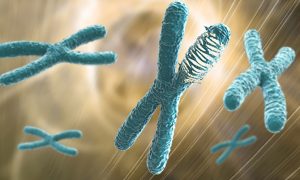
Understanding chromothripsis offers insights into how cancer develops.
SCIENCE & TECHNOLOGY2023
research-highlightsscience-technology
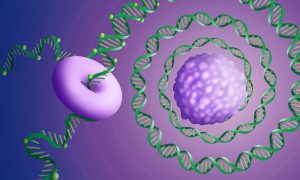
Using Oxford Nanopore long-read sequencing, EMBL scientists sequenced a primary childhood brain tumour known as a medulloblastoma, uncovering a novel complex mutation pattern.
2023
science
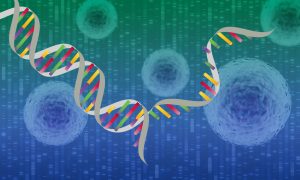
Genomic sequencing and big data analysis are two novel technologies driving researchers’ understanding of the complexities of cancer.
2023
perspectivesscience

Aggregating clinical, genomic and functional data from patient-derived xenografts, organoids and cell lines
2023
updates-from-data-resources

The new group leader in Barcelona aims to understand how cells behave in health and in disease, and approaches her favourite hobby, cooking, very similarly to her work in the lab.
LAB MATTERSPEOPLE & PERSPECTIVES2022
lab-matterspeople-perspectives
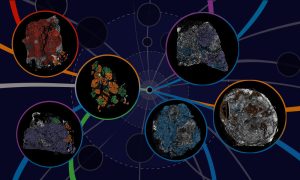
Researchers have created a tool that maps in previously unseen detail how breast cancer develops and spreads.
2022
research-highlightsscience
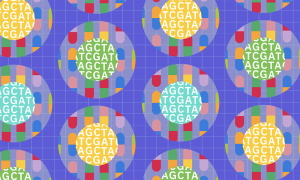
Researchers have come up with a way to test the efficacy of hundreds of anticancer drug combinations – simultaneously, rapidly, and accurately.
SCIENCE & TECHNOLOGY2022
sciencescience-technology

Two former EMBL staff members have been recognised for their outstanding contributions to research in the fields of brain evolution and cancer.
EMBL ANNOUNCEMENTS2022
alumniembl-announcements
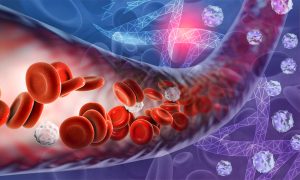
Researchers discover how DNA mutations change blood cell production and how this relates to ageing and cancer development.
SCIENCE & TECHNOLOGY2022
research-highlightssciencescience-technology

Judith Zaugg, Group Leader at EMBL Heidelberg, has been awarded an ERC Consolidator Grant of €2 million funded under the European Union’s Horizon Europe research and innovation programme. Over the next five years, the grant will enable her group to study cellular interactions in the human bone…
EMBL ANNOUNCEMENTSLAB MATTERS2022
embl-announcementslab-matters

The memorandum of understanding (MoU) signed between EMBL and the Institute for Advanced Biosciences (IAB) a year ago has already catalysed new grants for joint research projects related to cancer and infection biology, thereby deepening collaborative activities.
CONNECTIONSLAB MATTERS2021
connectionslab-matters
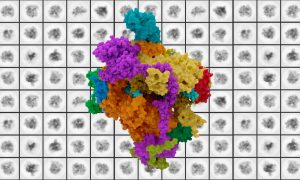
New structural biology research provides fundamental information critical to understanding enzyme mutations connected to rare diseases and cancers.
SCIENCE & TECHNOLOGY2021
sciencescience-technology

EMBL and Helmholtz Association have signed a memorandum of understanding. The expanded collaboration of both institutions will focus on research related to health.
CONNECTIONSLAB MATTERS2021
connectionslab-matters

EMBL alumnus Pawel Masiewicz has transferred skills and experience gained at EMBL to oversee starting materials for mRNA vaccine development.
PEOPLE & PERSPECTIVES2021
alumnipeople-perspectives
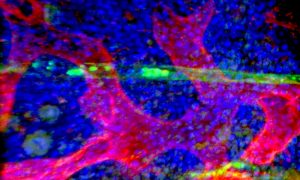
A new method has the potential to boost international research efforts to find drugs that eradicate cancer at its source.
SCIENCE & TECHNOLOGY2021
sciencescience-technology
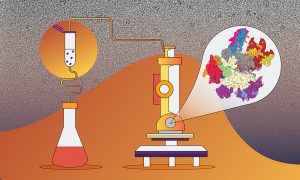
New EMBL research shows where & to what degree a component of cellular machinery known as RNA Pol III is mutated and becomes problematic.
SCIENCE & TECHNOLOGY2021
sciencescience-technology
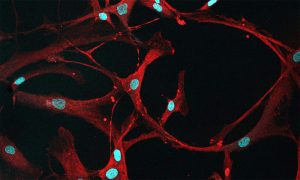
Studying cancers means also knowing what healthy cells look like. In this case, mesenchymal stromal cells (MSCs) from healthy bone marrow are a bit ‘loopy’.
SCIENCE & TECHNOLOGY2020
picture-of-the-weekscience-technology
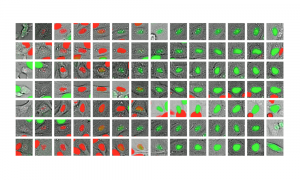
Members of an EMBL-led research group with collaborators in Estonia and Russia have built and trained a deep learning model to better understand how cells grow and divide.
SCIENCE & TECHNOLOGY2020
sciencescience-technology
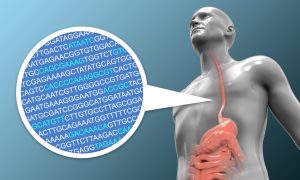
The Gerstung Group at EMBL-EBI and collaborators have developed a statistical model that analyses genomic data to predict whether a patient has a high or low risk of developing oesophageal cancer.
SCIENCE & TECHNOLOGY2020
sciencescience-technology
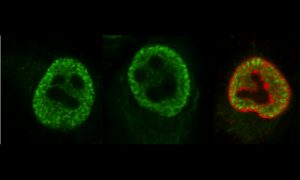
Despite their ghostly appearance, these are very real cell nuclei infected with Influenza A virus – the only influenza virus known to cause pandemics.
SCIENCE & TECHNOLOGY2020
picture-of-the-weekscience-technology

Researchers have developed an artificial intelligence algorithm that uses computer vision to analyse tissue samples from cancer patients. The algorithm can distinguish between healthy and cancerous tissues, and can also identify patterns DNA and RNA changes in tumours.
SCIENCE & TECHNOLOGY2020
sciencescience-technology
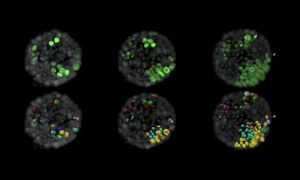
EMBL scientists have created a new, realistic 3D testbed that could help achieve the goal of stopping cancers before they start by studying cancer cells as they first form.
SCIENCE & TECHNOLOGY2020
sciencescience-technology
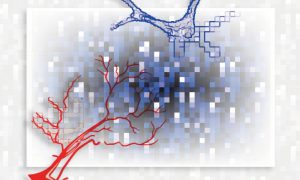
Scientists discovered that antihypertensive agent alters the tissue characteristics of colon cancer metastases. This "stiffness" of metastases has an effect on the therapeutic success.
SCIENCE & TECHNOLOGY2020
sciencescience-technology

DNA mutations are caused by a combination of DNA damage and repair, shows study by EMBL-EBI and collaborators.
SCIENCE & TECHNOLOGY2020
sciencescience-technology

The causes of 40 percent of all cases of certain medulloblastoma – dangerous brain tumours affecting children – are hereditary. These are the findings of a recent genetic analysis carried out by scientists from EMBL and numerous colleagues around the world.
SCIENCE & TECHNOLOGY2020
sciencescience-technology

EMBL co-leads most comprehensive study of genetic causes of cancer
SCIENCE & TECHNOLOGY2020
sciencescience-technology

Cloud computing offers unprecedented opportunities for global-scale research collaborations. It also presents a unique set of challenges in terms of data protection and the ethics of data sharing.
SCIENCE & TECHNOLOGY2020
sciencescience-technology
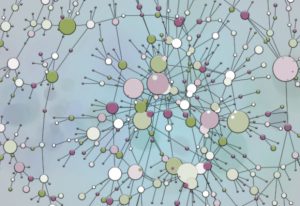
The largest and most comprehensive catalogue of cancer-specific RNA alterations reveals new insights into the cancer genome.
SCIENCE & TECHNOLOGY2020
sciencescience-technology

Researchers at EMBL’s European Bioinformatics Institute (EMBL-EBI) and the Francis Crick Institute have analysed the whole genomes of over 2600 tumours from 38 different cancer types to determine the chronology of genomic changes during cancer development.
SCIENCE & TECHNOLOGY2020
sciencescience-technology
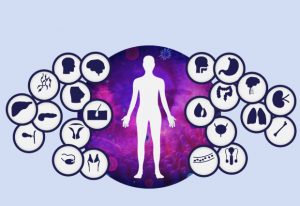
Using the dataset from the Pan-Cancer project, scientists has developed methods to group, classify, and describe large rearrangements of the genome that are a key driver of cancer.
SCIENCE & TECHNOLOGY2020
sciencescience-technology
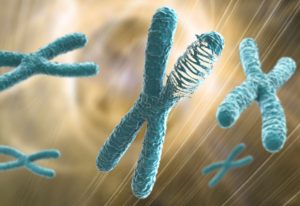
Researchers at Harvard Medical School and EMBL-EBI have carried out the largest analysis across cancer types of the newly discovered mutational phenomenon chromothripsis.
SCIENCE & TECHNOLOGY2020
sciencescience-technology

Using the data from the Pan-Cancer project EMBL scientists describe how our genetic background influences cancer development.
SCIENCE & TECHNOLOGY2020
sciencescience-technology
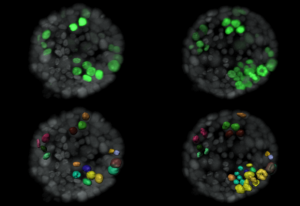
Breast cancer is the second leading cause of cancer-related deaths in women. It is so deadly because tumours often return after successful cancer treatment. This recurrence is caused by individual dormant cancer cells remaining inside the breast. These cells can develop into active cancer cells…
SCIENCE & TECHNOLOGY2019
picture-of-the-weekscience-technology
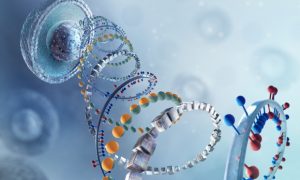
Researchers have developed a cheaper and faster method to check for genetic differences in individual cells
SCIENCE & TECHNOLOGY2019
sciencescience-technology
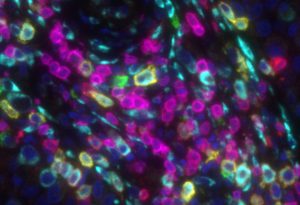
Immunotherapy: the role of B cells
SCIENCE & TECHNOLOGY2019
sciencescience-technology
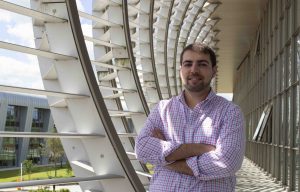
Exploring the cancer genomics labyrinth
PEOPLE & PERSPECTIVES2019
people-perspectivesscience

The increasing importance of code in the biological sciences
SCIENCE & TECHNOLOGY2019
sciencescience-technology
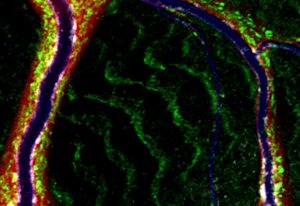
This image – resembling a network of rivers and canals – actually shows the tracheal tip cell of a fruit fly. Fruit flies are heavily used in research and they are a common model organism in developmental biology. Researchers at EMBL use the larvae of fruit flies to study tracheal cell…
SCIENCE & TECHNOLOGY2019
picture-of-the-weekscience-technology
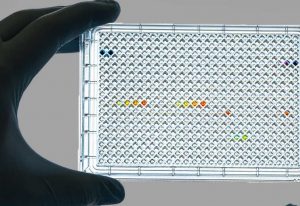
Large CRISPR screen prioritises hundreds of promising genes for personalised cancer treatment
SCIENCE & TECHNOLOGY2019
sciencescience-technology

Colorectal cancer characterised by consistent changes in gut bacteria across continents, cultures and diets
SCIENCE & TECHNOLOGY2019
sciencescience-technology

Scientists honoured for contributions in cancer immunotherapy and structural biology
PEOPLE & PERSPECTIVES2019
alumnipeople-perspectives

Cancer researchers have developed a computer model to predict the course of disease for prostate cancer
SCIENCE & TECHNOLOGY2018
sciencescience-technology
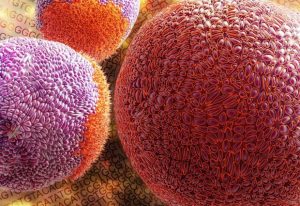
Large-scale systematic analysis explores how inherited genome affects drug response of cancer cells
SCIENCE & TECHNOLOGY2018
sciencescience-technology
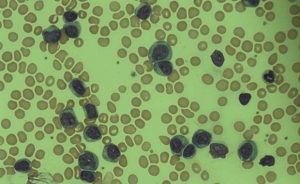
Acute myloid leukaemia risk could be detected years before diagnosis
SCIENCE & TECHNOLOGY2018
sciencescience-technology

Combinations of cancer drugs can be quickly and cheaply tested using a novel microfluidic device
SCIENCE & TECHNOLOGY2018
sciencescience-technology
New computational method uses multi-omics analysis for personalised medicine
SCIENCE & TECHNOLOGY2018
sciencescience-technology

More than 80 attendees gathered at the EMBL in Italy event at the FIRC Institute of Molecular Oncology (IFOM) in Milan
PEOPLE & PERSPECTIVES2018
alumnipeople-perspectives
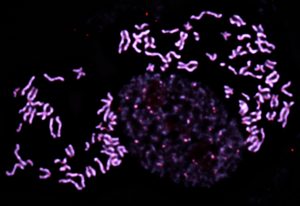
EMBL group leader Jan Korbel reflects on his scientific origins and current research
SCIENCE & TECHNOLOGY2018
sciencescience-technology
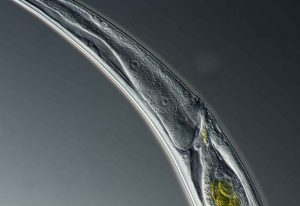
What worms can tell us about cancer
SCIENCE & TECHNOLOGY2018
sciencescience-technology
Launch of the first free global online catalogue of PDX models
SCIENCE & TECHNOLOGY2018
sciencescience-technology
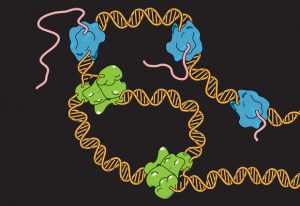
Thanos Halazonetis discusses the EMBO/EMBL Symposium: DNA Replication: From Basic Biology to Disease
SCIENCE & TECHNOLOGY2018
eventsscience-technology
How patient-derived computational models can help researchers understand cancer
SCIENCE & TECHNOLOGY2017
sciencescience-technology

EMBL-EBI and IMPC characterised over 3000 mouse genes, revealing new gene associations with disease
SCIENCE & TECHNOLOGY2017
sciencescience-technology
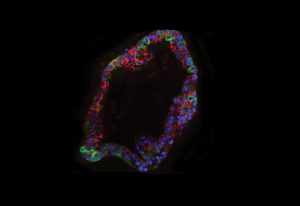
Hallmarks of residual breat cancer cells suggest new approaches for preventing relapse
SCIENCE & TECHNOLOGY2017
sciencescience-technology
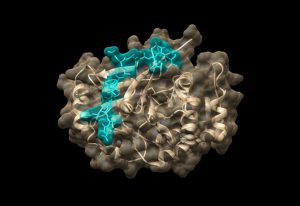
ERC grantee Maja Köhn shares her vision for the next ten years
SCIENCE & TECHNOLOGY2017
sciencescience-technology
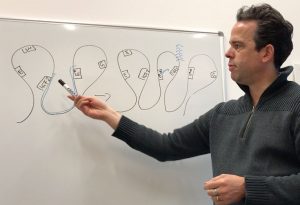
EMBL study finds that rearranging how DNA packs the nucleus can activate cancer genes
LAB MATTERSSCIENCE & TECHNOLOGY2016
lab-mattersscience-technology
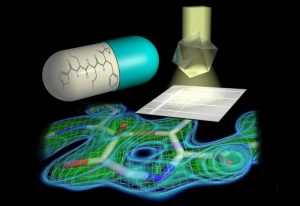
Detailed structure paves the way for more effective cancer therapies
SCIENCE & TECHNOLOGY2016
sciencescience-technology

New method enables scientists to use light to direct where cancer cells go
SCIENCE & TECHNOLOGY2016
sciencescience-technology
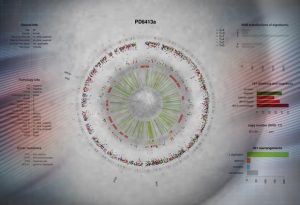
Largest-ever study of breast cancer genomes reveals new genes and mutations
SCIENCE & TECHNOLOGY2016
sciencescience-technology
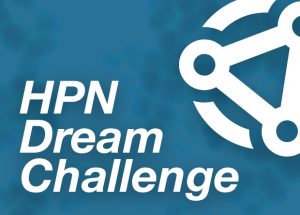
“It’s a bit like drawing a picture of an intricate object just by looking at its shadow on the wall."
SCIENCE & TECHNOLOGY2016
sciencescience-technology

New computational method to study biological signalling networks in healthy and cancer cells.
SCIENCE & TECHNOLOGY2015
sciencescience-technology

Jan Korbel and colleagues publish commentary on risks and rewards of genome cloud computing.
SCIENCE & TECHNOLOGY2015
sciencescience-technology

Academic community clouds take cancer research towards a brighter future.
LAB MATTERSSCIENCE & TECHNOLOGY2015
lab-mattersscience-technology

Kidney cancer linked to exposure to aristolochic acid, an ingredient in some herbal remedies.
SCIENCE & TECHNOLOGY2014
sciencescience-technology
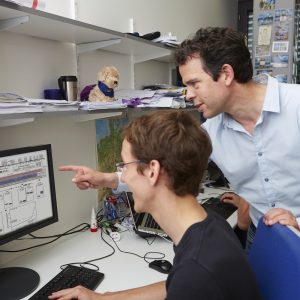
Enabling neighbours: intact genes can cause cancer when placed near "enhancing" regions of DNA
SCIENCE & TECHNOLOGY2014
sciencescience-technology
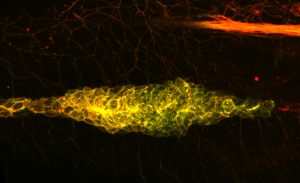
Migrating cells, it seems, cover their tracks not for fear of being followed, but to keep moving forward. Scientists at the European Molecular Biology Laboratory (EMBL) in Heidelberg, Germany, have now shown that cells in a zebrafish embryo determine which direction they move in by effectively…
SCIENCE & TECHNOLOGY2013
sciencescience-technology
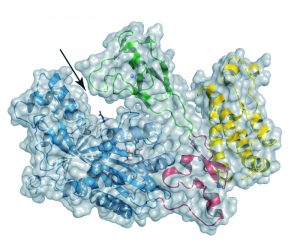
Like a fireman who becomes an arsonist, a protein that prevents cells becoming cancerous can also cause tumours, scientists at the European Molecular Biology Laboratory (EMBL) in Grenoble, France, have discovered. The finding, published today in Nature Structural and Molecular Biology, stems…
SCIENCE & TECHNOLOGY2013
sciencescience-technology
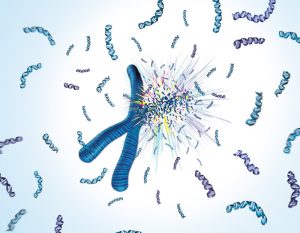
An inherited mutation in a gene known as the guardian of the genome is likely the link between exploding chromosomes and some particularly aggressive types of cancer, scientists at the European Molecular Biology Laboratory (EMBL), the German Cancer Research Centre (DKFZ) and the University…
SCIENCE & TECHNOLOGY2012
sciencescience-technology
A team of geneticists and computational biologists at the European Molecular Biology Laboratory’s European Bioinformatics Institute (EMBL-EBI), the Wellcome Trust Sanger Institute and Cancer Research UK reveal how an ancient mechanism is involved in gene control and continues to drive genome…
SCIENCE & TECHNOLOGY2012
sciencescience-technology
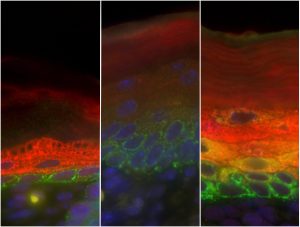
Stem cells have a unique ability: when they divide, they can either give rise to more stem cells, or to a variety of specialised cell types. In both mice and humans, a layer of cells at the base of the skin contains stem cells that can develop into the specialised cells in the layers above.…
SCIENCE & TECHNOLOGY2009
sciencescience-technology
Leukaemia – cancer of blood or bone marrow – is caused by mutations that allow defective blood cells to accumulate and displace healthy blood. To devise effective therapies it is crucial to know which mutations cause leukaemia and which cell type gives rise to leukaemic cells. Researchers from…
SCIENCE & TECHNOLOGY2008
sciencescience-technology
New insights into the cellular signal chain through which pheromones stimulate mating in yeast have been gained by scientists at the European Molecular Biology Laboratory [EMBL]. Similar signal chains are found in humans, where they are involved in many important processes such as the…
SCIENCE & TECHNOLOGY2007
sciencescience-technology

Scientists from the European Molecular Biology Laboratory (EMBL) have developed a new method to prepare and image biological samples in three dimensions with laser light-sheet based fluorescence microscopy. The technological advance, which is published in the current online issue of Nature…
SCIENCE & TECHNOLOGY2007
sciencescience-technology
Liver cancer is one of the deadliest cancers worldwide; every year sees more than 400,000 new cases, and most of the victims die in less than one year. Despite extensive research, the underlying molecular mechanisms of the disease are poorly understood. A new study by researchers from the Mouse…
SCIENCE & TECHNOLOGY2007
sciencescience-technology
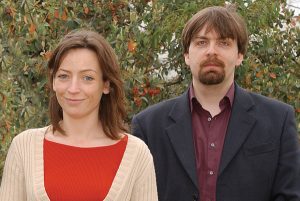
Blood cells have limited lifespans, which means that they must be continually replaced by calling up reserves and turning these into the blood cell types needed by the body. Claus Nerlov and his colleagues at the European Molecular Biology Laboratory (EMBL) unit in Monterotondo, Italy, in…
SCIENCE & TECHNOLOGY2006
sciencescience-technology
Cells in an embryo divide at an amazing rate to build a whole body, but this growth needs to be controlled. Otherwise the result may be defects in embryonic development or cancer in adults. Controlling growth requires that some cells divide while others die; their fates are determined by signals…
SCIENCE & TECHNOLOGY2006
sciencescience-technology
Today EMBL scientists, EMBL’s commercial affiliate, EMBL Enterprise Management Technology Transfer GmbH (EMBLEM) and EMBL’s venture vehicle, EMBL Ventures GmbH, announce the foundation of Elara Pharmaceuticals GmbH, a start-up company that will translate basic research findings into new…
LAB MATTERSSCIENCE & TECHNOLOGY2006
lab-mattersscience-technology
Scientists at the European Molecular Biology Laboratory (EMBL) in Heidelberg and the Institute of Biomedical Research of the Parc Científic de Barcelona (IRB-PCB) have now added key evidence to claims that some types of cancer originate with defects in stem cells. The study, reported this week in…
SCIENCE & TECHNOLOGY2005
sciencescience-technology
No results found